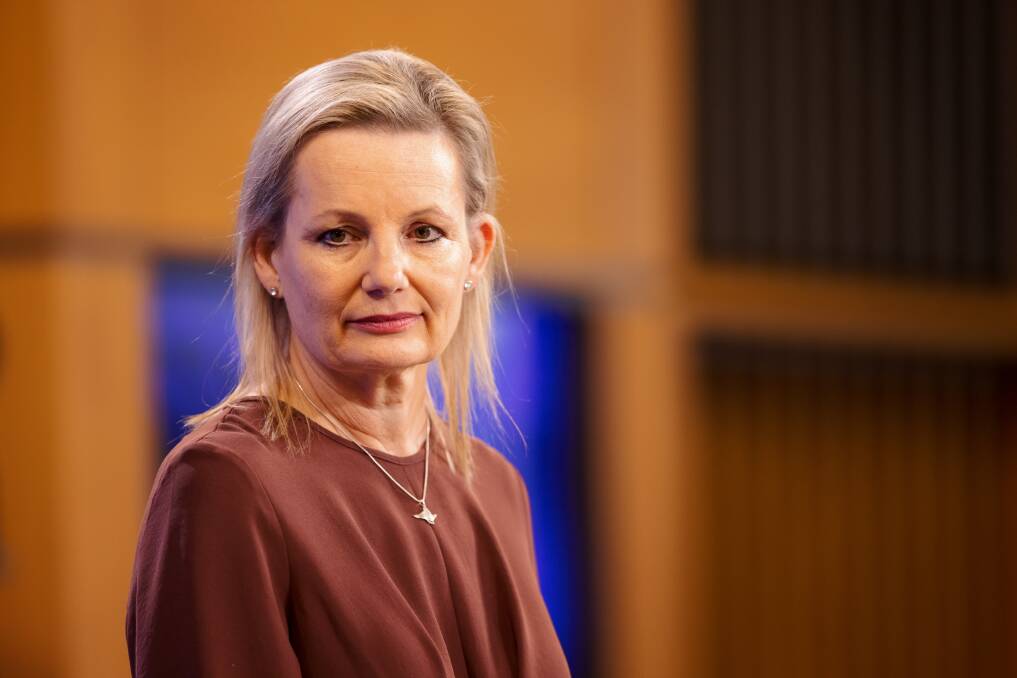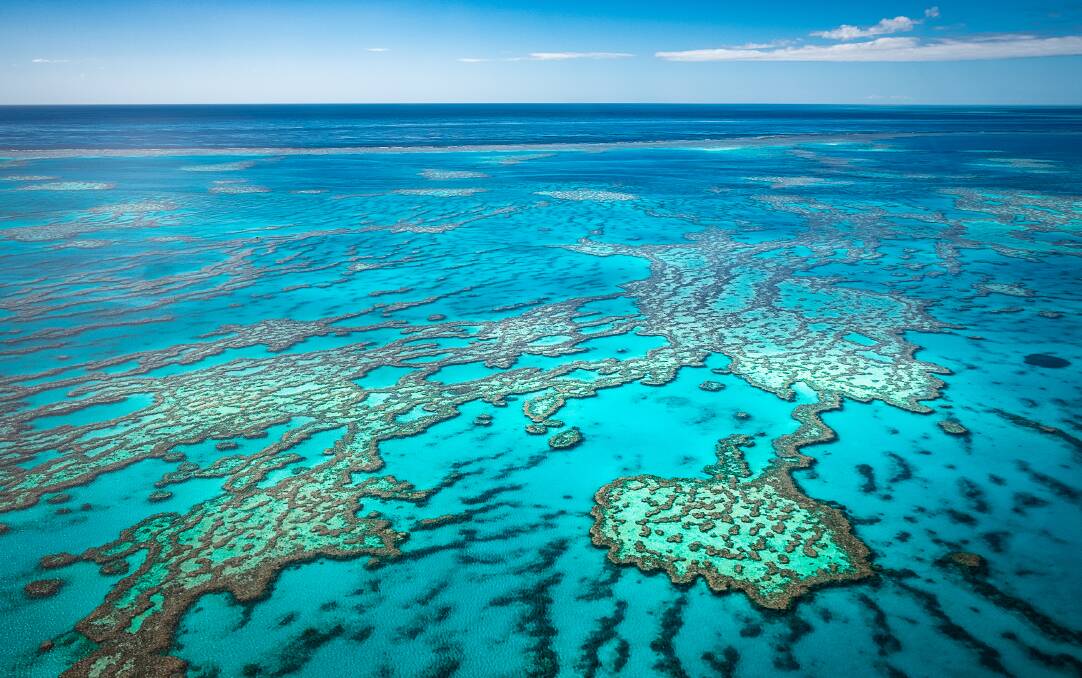
A "stunned" federal government has attacked a UN organisation for a "complete subversion of normal process", after it recommended the Great Barrier Reef be declared endangered due to its fast-deteriorating condition.
Subscribe now for unlimited access.
or signup to continue reading
Environment Minister Sussan Ley has strongly defended the government's "gold standard" management of the reef and its record on cutting greenhouse gas emissions, after a UNESCO committee called on Australia to urgently address the natural wonder's biggest threat - climate change.
Ms Ley vowed to fight the draft decision ahead of the committee's next meeting in July, warning the reef's international reputation could be tarnished if the recommendation was ratified.
But climate groups and coral reef scientists have urged the government to heed UNESCO's message, insisting there was no time to waste to reduce the risk of future mass coral bleaching events.
UNESCO's World Heritage Committee has provisionally recommended the Great Barrier Reef be declared "in danger", citing reports showing its long-term outlook had deteriorated from "poor to very poor" and the decline had occurred faster and been more widespread than was previously evident.
Climate change was the major cause of major coral bleaching events in 2016, 2017 and 2020, the report stated.
The report commended Australia's "unprecedented" financial investment in the reef, but said it needed to "accelerate action at all levels" to address the climate threat.
Ms Ley said the government had been "blindsided" by the decision, claiming UN officials had reassured Australia just a week earlier that it wouldn't make a recommendation before the committee's July meeting.
She said the committee's recommendation was flawed because it was based on a desktop review of the reef's condition, rather than an in-person inspection.
"This is a complete subversion of normal process," she said.
"The Foreign Minister and I had a late night meeting with the director-general of UNESCO and we made clear our strong disappointment, and even our bewilderment, that our officials had been blindsided in the way that they have."
Describing the Great Barrier Reef as the best managed reef in the world, Ms Ley claimed the the committee's recommendation had been politically motivated.

The 21-member committee is chaired by China, raising immediate questions over whether the decision represented Beijing's latest act of retribution against Australia. Australia is also a committee member.
Ms Ley did not comment directly on China's possible role, but insisted politics was clearly at play.
"When procedures are not followed, when the process is turned on its head five minutes before the decision is due to be published ... what else can you conclude but that it is politics," she said.
The Canberra Times has asked Ms Ley's office to provide evidence of assurances UN officials had given Australia prior to the surprise decision.
UNESCO has also been contacted for comment.
The committee's draft recommendation has put renewed scrutiny on Australia's climate action policies, which have left it increasingly isolated on the world stage.
The Morrison government has refused to budge from its 2030 emissions reduction target despite international pressure, while the prospect of a commitment to achieving net zero by 2050 is now seen as unlikely after Barnaby Joyce's return as Nationals leader.
Coral reef scientist Terry Hughes said the federal government shouldn't have been surprised by the draft recommendation, saying "report after report" from UNESCO and other authorities had warned of the reef's decline.
Professor Hughes said as the country responsible for the Great Barrier Reef, Australia should be leading the fight to tackle the threat of climate change.
He described the government's climate and energy policies, specifically its so-called "gas-fired" recovery plan, as a "complete policy failure" for the reef.
"The reality is that we now have had five bleaching events since 1998," he said.
"Things are hotting up and there is no time to lose to reduce green gas emissions."
READ MORE:
Climate scientist Lesley Hughes said the Morrison government was failing in its responsibility to protect the reef.
"The Australian government has stewardship of one of the world's most precious and iconic ecosystems, but its continued support for fossil fuels and its lack of effective climate policy means it's utterly failing to live up to that responsibility," Professor Hughes, who is a Climate Council spokeswoman, said.
Labor's environment spokeswoman Terri Butler said the Morrison government needed to do everything it could to avoid the "in danger" listing.
"The Great Barrier Reef is a natural wonder of the world, jobs rely on it and the Australian identity, frankly, partly relies on it," she said.
"They need to do better. They need to stop ignoring the warning signals that have been coming to them, including previous reports, and the bleaching events."
Independent MP Zali Steggall said UNESCO's report was a warning shot from the international community, signaling how it could react if Australia didn't increase its climate action ambition.
Our journalists work hard to provide local, up-to-date news to the community. This is how you can continue to access our trusted content:
- Bookmark canberratimes.com.au
- Download our app
- Make sure you are signed up for our breaking and regular headlines newsletters
- Follow us on Twitter
- Follow us on Instagram


